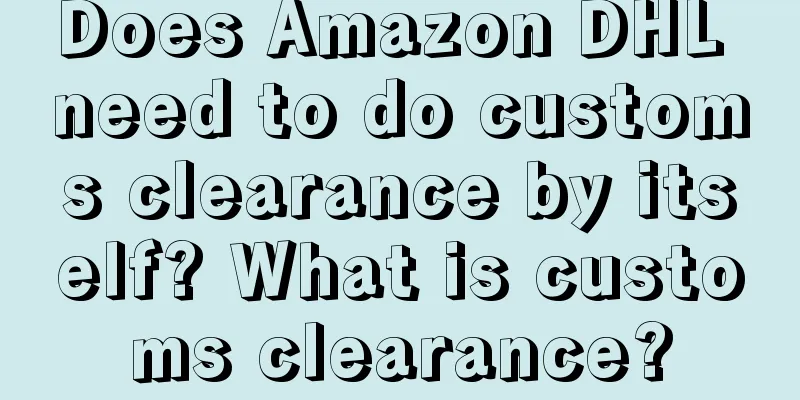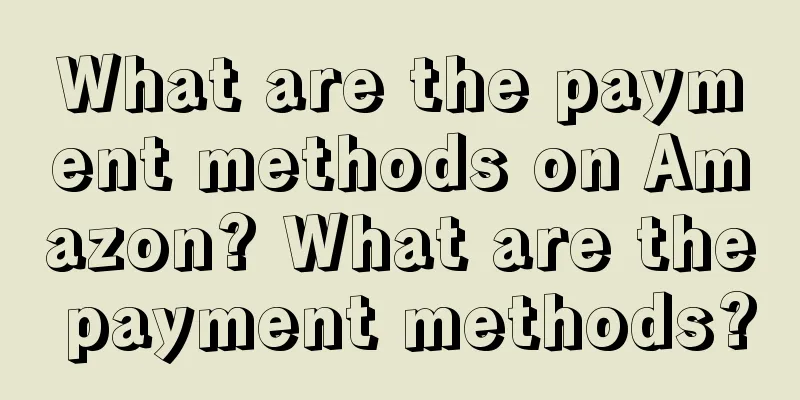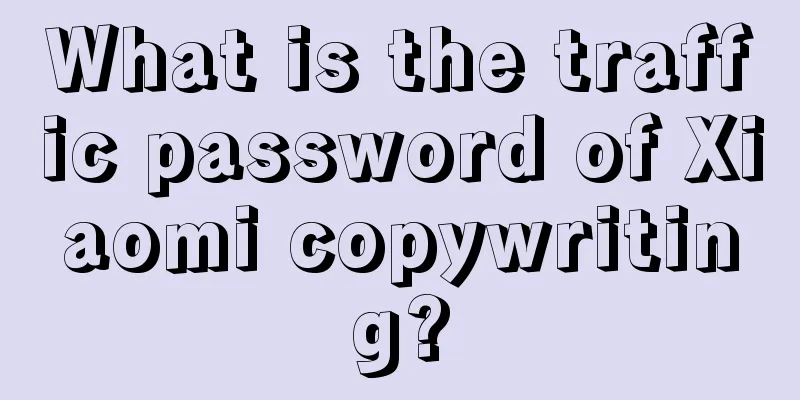Why can’t you learn from Luckin’s private domain? A private domain director’s soulful reflection

In recent years, almost all private domain managers, second-party service providers, and first-party HR will blurt out Luckin Coffee, McDonald's, KFC, etc., or some well-known brands such as Perfect Diary, Cotton Era, and Baiguoyuan when mentioning private domain. But why can Luckin Coffee be so successful in the private domain, while your brand is full of loopholes once it is put into practice and is sinking deeper and deeper into the social dilemma? This is also a hot topic in the Jianshi member community. With this question, we had an in-depth chat with Zhu Yifei, who has experience in membership and private domain management of 1, 50, 700 and 10,000 stores, covering direct sales, joint ventures and franchise models, and has experience in managing 20,000 communities and 6 million private domain friends. Why can’t we just blindly learn from Luckin Coffee? Zhu Yifei gave three reasons: different scale, different positioning, and different structure, and told us how to learn from Luckin Coffee’s strengths and make up for our own weaknesses. This is an era that focuses on "consumer experience", and whether it is a private domain is no longer so important. Let's think about another question. You think Luckin Coffee is doing private domain in a crude way, but why is their user experience still very good? Starbucks did not do private domain like Luckin Coffee, but how is their consumer experience? There are thousands of ways for brands to create "consumer experience". Just look at Luckin Coffee. It not only has strong brand co-branding and supply chain capabilities, but is also a technology company at the bottom. Just look at Starbucks. It is obvious that the brand has already established trust in the public domain, but the private domain has become a place where the brand and trust are consumed. What changes is the scene, but what remains unchanged is the better consumer experience. We should not only look at the explicit costs, but also calculate the hidden costs behind them, that is, whether it conforms to the brand positioning, whether it affects the brand's gross profit margin, and whether it will cause irreversible user losses, etc. Why can Luckin Coffee achieve such smooth conversion? What should we pay attention to in essence? On December 7, we have gathered many important guests and high-quality sharing content for heavy conversion. Welcome to join the Jianshi membership and pay attention to the private domain annual conference on December 7 to discuss the future private domain monetization gameplay and trends.
Behind many reasons, we may learn how to "copy homework" correctly from the Luckin Coffee case. Without further ado, let's return to the case itself as follows: 1. Different levels: It’s not that you can’t learn it, but that you shouldn’t learn itEveryone subconsciously thinks that Luckin Coffee has done a good job in its private domain. The private domain operations personnel you hired can explain clearly how Luckin Coffee places advertisements in social groups, in private messages, and in Moments. The private domain consultant, third-party agency or even Tencent’s official WeChat account that you meet will make a 50-page PPT on how Luckin Coffee and other companies do private domain, and five or six people will spend an hour explaining it to you. But in fact, this is a huge business trap. Anyone who has watched a boxing match knows that different weight classes have different styles of competition. A 52kg lightweight fighter focuses more on technique and flexibility, and needs to have excellent reaction ability and accurate striking skills; a 91kg super heavyweight fighter focuses more on strength and resistance, and needs to have excellent punching power and resistance to blows. There is no doubt that Luckin is such a "super heavyweight player" . According to Luckin's Q2 2023 financial report, Luckin Coffee's total net revenue in Q2 was RMB 6.2 billion, a year-on-year increase of 88.0%, with a profit of RMB 1.1728 billion and a profit margin of 18.9%, a record high. Not only did Luckin's revenue shine, but it also surpassed Starbucks with 10,836 stores, becoming the No. 1 coffee brand in China. In terms of brand collaboration, R&D matrix, degree of informatization and store scale, they are all world-class and extremely difficult to replicate. Ordinary brands cannot learn these, so why can you directly copy and use his private domain gameplay? As the best channel for brands to deliver value and information to consumers, private domain (here specifically referring to Tencent's WeChat system) should be adapted to local conditions and the times. Just ask yourself, if Luckin Coffee doesn't give you any coupons today, how likely are you to spend 25 yuan to buy their coffee? Most likely not. Because there are too many brands that can serve as substitutes. Luckin Coffee doesn't need to interact strongly with consumers. It can give you coupons through algorithms, which is enough to attract you to consume again and again. Because they made it clear from the beginning that they would have a strategy of opening 10,000 stores, they firmly believed in creating a sufficiently rich product matrix, they understood from the beginning the importance of digital capabilities and invested a lot of manpower to build an IT team, they were confident in their strategy, and had a complete infrastructure, and finally condensed it into one key operational action - adding people, creating groups, and issuing coupons. In addition to Luckin Coffee, some leading brands also directly adopt the violent method of "adding people, forming groups, issuing coupons/advertising", which are the McDonald's community, KFC community, etc. mentioned at the beginning. In essence, when a category is monopolized by a few brands, it is consumers who need this brand, rather than the brand needing a specific consumer group. When the price and taste of coffee are similar and no other brand can compete effectively with the leading brands, they are not afraid of offending consumers. "Adding people, creating groups, issuing coupons/advertising" is the simplest and most effective way of private domain management. However, if users' ability to accept is not strong, it will be like eating a lot but not digesting it well, which will easily lead to indigestion. 2. Different positioning: Luckin is Luckin, and you are youAn interesting question: If Luckin Coffee is really making a lot of money in the private sector, why doesn’t Starbucks do the same? It is very simple for Starbucks to place an order based on user preferences by throwing a coupon every day. Is it that Starbucks has no vision, no ability, no operation, or no tools? None of them. Starbucks does not do private domain like Luckin Coffee. There are essentially three unacceptable points: First, it reduces brand power; second, it reduces gross profit margin; third, users’ ordering habits are irreversible. First of all, Starbucks has a very high user value. If it continues to bombard users with noisy advertisements every day in the community, it will be like treating users as fools. Not only will it offend users who are extremely loyal to the brand, but it will also not bring any business growth. This is also the irreversible sequelae of most catering brands after issuing coupons in the community. Secondly, Starbucks' global image and power force them to not accept the rough operation of users like Luckin Coffee, or they do not need to bend over to do business on WeChat. There is no need to waste brand power in the private domain environment and ruthlessly destroy the user experience that has been hard to build. If we analyze it in depth, we will find that there are actually two major costs that cannot be ignored: 1. Opportunity CostIs it better to convert all users in the private domain? What if the conversion effect is better if some users are transferred to the public domain? 2. The cost of silenceOnce consumers cancel their WeChat friendship with a brand, it is difficult to add it back. In addition, the era of "low-cost multiple touches" in the private domain has become a thing of the past with the introduction of the corporate WeChat charging policy. Taking into account the above explicit and implicit costs, where and how to reach users is a matter of balance. Starbucks' user operation strategy is very clear, that is, converting users who are loyal to the brand in the private domain and converting wool users in the public domain . In detail, it is: For the most core super users , a strong membership system is used to reach them, which are often mentioned as stars; for potential super users, stores build a familiar customer group by having staff actively add them, and there is a high probability that super users are also in the group, so the difficulty of group operation is suddenly reduced a lot; for wool users, discounts are placed on Dianping, in a variety of forms such as single products, packages, and single-use cards. Starbucks' restraint has helped them avoid the detours that many restaurant owners have taken in their private domains. Looking back at your own brand, are you also unable to tolerate these three things? This is something worth pondering. Some leading brands want to reduce their profit losses during the epidemic and want to repeat the public domain practices in the private domain. Then don't blame consumers for being "callous and heartless". Since you don't treat users as "people" and operate them well, don't blame users for deleting your Weibo and leaving your group. One day, you will stop the rough galafah because of these three things. Either you stop, or your users stop. 3. Different Patterns: Good user experience is not enough just in private domainsHow can you learn from Luckin’s private domain? Learning from Luckin’s desperate efforts to build a group to send coupons often means tactical diligence and strategic laziness, which is the wrong direction. Not every private domain is worth copying, but they are worth our reflection. If a brand has already established trust in the public domain, the private domain will become a place where the brand and trust are consumed. The private domains of many leading brands are simply crude repetitions and lying flat, with mass messages sent all at once, with almost no output of emotional value, no refined user journey, and no ultimate customer experience. This is also the reason why well-known brands such as Perfect Diary have faded from the public eye. What’s even more tragic is that service providers are still using the failed private domain brands to preach to traditional restaurant owners, persuading them to buy software and do agency operations. Brands have also lost the most valuable user trust in the process of changing systems and service providers again and again. This is an era that focuses on "consumer experience", and it doesn't matter whether it is a private domain or not. You think Luckin Coffee is doing private domain in a crude way, but how is their user experience? You think Starbucks is not doing private domain like Luckin Coffee, but how is their consumer experience? There are thousands of ways for brands to create a "consumer experience", so how does Luckin create a brand "consumer experience"? We can at least see three points: Luckin is the king of joint ventures, and its recent sauce-flavored latte has gone viral online. Through each event marketing, it has broken the circle again and again, greatly compensating for the decline in brand power caused by the continuous issuance of coupons. Each joint venture can trigger a wave of sales, constantly attracting more and more users to become Luckin members. Luckin is the king of supply chain. Whether it is equipment, consumables, raw materials, etc., they are all based on the scale of stores, which greatly reduces costs. As long as the supply chain is strong enough, the price war will only become the last straw that breaks the camel's back for other tea brands, and will have little impact on Luckin itself. Luckin is a technology giant. It is probably the company that understands informatization the best among catering companies, and the company that understands catering the best among technology companies. Since users have developed the habit of placing orders with coupons, issuing coupons more accurately and reaching customers at a better time is the result of continuous iteration and improvement after big data calculations. In addition, their product iteration frequency is high, and their taste can also make breakthroughs in the seemingly solidified coffee market, which is even more of a plus. Any of the above points may be something that an ordinary brand owner may not be able to achieve in his entire life. Every brand should focus on consumer experience. It should not only see the explicit costs, but also calculate the implicit costs hidden behind them, namely, brand tone, gross profit margin and the irreversibility of user ordering behavior. Author: Tang Luyao Source: WeChat public account "Jianshi (ID:jianshishijie)" |
<<: Data analysis ideas, I summarized four useful templates
>>: No collapse, no rest, and low cost, can digital humans subvert live streaming e-commerce?
Recommend
“Who will be the next brand to be swallowed up by Douyin’s traffic?”
Today’s Internet traffic can make some brands succ...
How to check the product listing time on Amazon? How to list products?
In Amazon, a global e-commerce giant, both sellers...
5 stages of self-media operation and growth strategy
How can you make your self-media account continue ...
How to get accurate leads through content (Part 2)
How to accurately obtain clues for content product...
The "most competitive" 618 shopping festival in history comes to an end: the melee escalates, and everyone uses their own unique tactics
During the 618 promotion, various e-commerce platf...
Wukong is online. What is Luckin Coffee's method for IP co-branding?
Luckin Coffee's IP collaboration with Black My...
How much is the salary of a foreign trade merchandiser? Is there any commission?
The word "foreign trade merchandiser" li...
How does shein supplier find hot products? What are the requirements for suppliers?
Shein is a well-known fashion e-commerce platform ...
Should a new Shopee store advertise? Tips on how to advertise on Shopee
As a cross-border e-commerce platform, Shopee is v...
Some people make a fortune by selling short videos of misery, but you are still kept in the dark
With the progress and development of the times, th...
How to operate eBay in one month? What should a novice operator do?
If you are just starting to sell on eBay, you can ...
How does a 9.9 yuan cup of coffee capture people’s hearts?
Now more and more coffees are available at a disco...
600,000 RMB for a video, post-00s internet celebrity "turns over", gains millions of fans but is exposed for not paying social security for employees
Internet celebrity "Wang Ma" Wang Zhixin...
How long does it take to open a Lazada Super Alliance account? FAQ
As a cross-border e-commerce platform, Lazada'...
120 Pokémon IP packaging + game-like design, Master Kong's crispy and delicious food is really "knowledgeable"
This article uses the successful IP brand collabor...









